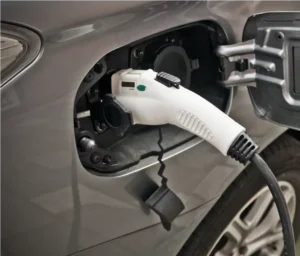Hydrogen fuel has a bigger role to play in helping reduce carbon emissions from the highways and transport sector, according to a new report by the Centre for Policy Studies.
The report, Driving Change-How Hydrogen can Fuel a Transport Revolution, calls for progress to be made with heavy-duty vehicles such as buses, trains, ships and lorries as well as cars. It says in these cases, hydrogen is a much more suitable fuel because it has a higher energy storage density than lithium-ion batteries.
It also says hydrogen would also give Britain an opportunity to lead the world in a vital sector and create thousands of ‘green jobs’.
The government has committed to reaching net-zero emissions by 2050, and with transport being one of the main sources of these emissions, the Centre for Policy Studies is urging the government to look at hydrogen as a solution to these problems.
The report makes a number of recommendations and calls for a UK-wide hydrogen strategy which should include; setting a target of 2038 for the UK bus fleet to become zero-emission, introducing clean air targets in line with WHO guidelines and introducing strategies to decarbonise HGVs, buses, trains, shipping and aviation.
“The report shows why the current strategy of transport decarbonisation, while effective for some classes of vehicle, is not be suitable for all. It makes the case for examining the potential role which alternative fuels, such as sustainably produced hydrogen, could play in ensuring that the UK can meet its climate and air quality objectives. It
outlines the potential advantages to Britain of being an early mover in this technology, and using the heavy transport sector, and in particular the bus network, as a test bed for innovation. And it outlines how the UK can meet its Net Zero targets in the sector without excessive taxation or regulation, while delivering cleaner air, cleaner engines, and cleaner roads.”
























